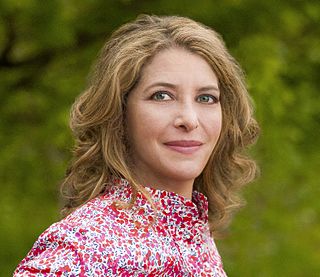
A food pyramid is a representation of the optimal number of servings to be eaten each day from each of the basic food groups. The first pyramid was published in Sweden in 1974. The 1992 pyramid introduced by the United States Department of Agriculture (USDA) was called the "Food Guide Pyramid" or "Eating Right Pyramid". It was updated in 2005 to "MyPyramid", and then it was replaced by "MyPlate" in 2011.
BioMed Central (BMC) is a United Kingdom-based, for-profit scientific open access publisher that produces over 250 scientific journals. All its journals are published online only. BioMed Central describes itself as the first and largest open access science publisher. It was founded in 2000 and has been owned by Springer, now Springer Nature, since 2008.

Ergocalciferol, also known as vitamin D2 and nonspecifically calciferol, is a type of vitamin D found in food and used as a dietary supplement. As a supplement it is used to prevent and treat vitamin D deficiency. This includes vitamin D deficiency due to poor absorption by the intestines or liver disease. It may also be used for low blood calcium due to hypoparathyroidism. It is used by mouth or injection into a muscle.
David Ludwig is an American physician in Boston, Massachusetts.

Medical research, also known as experimental medicine, encompasses a wide array of research, extending from "basic research", – involving fundamental scientific principles that may apply to a preclinical understanding – to clinical research, which involves studies of people who may be subjects in clinical trials. Within this spectrum is applied research, or translational research, conducted to expand knowledge in the field of medicine.

Marion Nestle is an American molecular biologist, nutritionist, and public health advocate. She is the Paulette Goddard Professor of Nutrition, Food Studies, and Public Health Emerita at New York University. Her research examines scientific and socioeconomic influences on food choice, obesity, and food safety, emphasizing the role of food marketing.

The Western pattern diet is a modern dietary pattern that is generally characterized by high intakes of pre-packaged foods, refined grains, red meat, processed meat, high-sugar drinks, candy and sweets, fried foods, conventionally-raised animal products, butter and other high-fat dairy products, eggs, potatoes, corn, and low intakes of fruits, vegetables, whole grains, pasture-raised animal products, fish, nuts, and seeds.
The Federation of American Societies for Experimental Biology (FASEB), based in Rockville, Maryland, is a non-profit organization of scientific societies in the United States. With a focus on the biological and biomedical sciences, the federation represents scientists in such fields as anatomy, physiology, immunology, biochemistry, molecular biology, toxicology, genetics, and nutrition.

The American Society for Nutrition (ASN) is an American society for professional researchers and practitioners in the field of nutrition. ASN publishes four journals in the field of nutrition. It has been criticized for its financial ties to the food and beverage industry.
Allied Academies is a reportedly fraudulent corporation chartered under the laws of North Carolina. Its postal address is in London, United Kingdom. It presents itself as an association of scholars, with supporting and encouraging research and the sharing and exchange of knowledge as its stated aims. The organization consists of 30 affiliate academies, which provide awards to academics and publish academic journals both online and in hard copy for members. Since 2015 the organization has been listed on Jeffrey Beall's list of "potential, possible, or probable predatory scholarly open-access publishers". It is in a partnership with OMICS Publishing Group which uses its website and logo. In 2018, OMICS owner Srinubabu Gedela declared that he had informed the Nevada court that Allied Academies was a subsidiary of OMICS International. During a conference in 2018, they falsely listed a prominent chemist among its organizing committee who had not agreed to this and was not affiliated with Allied Academies.
Sheldon Krimsky was a professor of Urban and Environmental Policy and Planning at Tufts University, and adjunct professor in the Department of Family Medicine and Community Health at Tufts University School of Medicine. He was a fellow of the Hastings Center, an independent bioethics research institution.

Vitamin D is a group of fat-soluble secosteroids responsible for increasing intestinal absorption of calcium, magnesium, and phosphate, and many other biological effects. In humans, the most important compounds in this group are vitamin D3 (cholecalciferol) and vitamin D2 (ergocalciferol).

The Sugar Association is a trade association for the sugar industry of the United States. Its members include nearly 142,000 growers, processors and refiners of sugar beet and sugarcane plants.
Gladys Block is a nutrition researcher who worked at the National Cancer Institute.

Nina Teicholz is a journalist who advocates easing restrictions on naturally-occurring fats, including so-called "saturated" fats, in the American diet.

Conflicts of interest (COIs) often arise in academic publishing. Such conflicts may cause wrongdoing and make it more likely. Ethical standards in academic publishing exist to avoid and deal with conflicts of interest, and the field continues to develop new standards. Standards vary between journals and are unevenly applied. According to the International Committee of Medical Journal Editors, "[a]uthors have a responsibility to evaluate the integrity, history, practices and reputation of the journals to which they submit manuscripts".
Science Publishing Group (SPG) is an open-access publisher of academic journals and books established in 2012. It has an address in New York City but is actually based in Pakistan. The company has been criticized for predatory publishing practices. As of 2019, it publishes 430 journals in various fields.

Current Developments in Nutrition is a monthly peer-reviewed biomedical journal in the field of nutrition.
Robert H. Herman was an American author, biochemist, nutritionist, physician, soldier, and scientist. Herman was a gastroenterologist and expert in human nutrition with interests in food intolerance, gastrointestinal enzymes, inborn errors of metabolism, metabolic control, and lactase deficiency.










